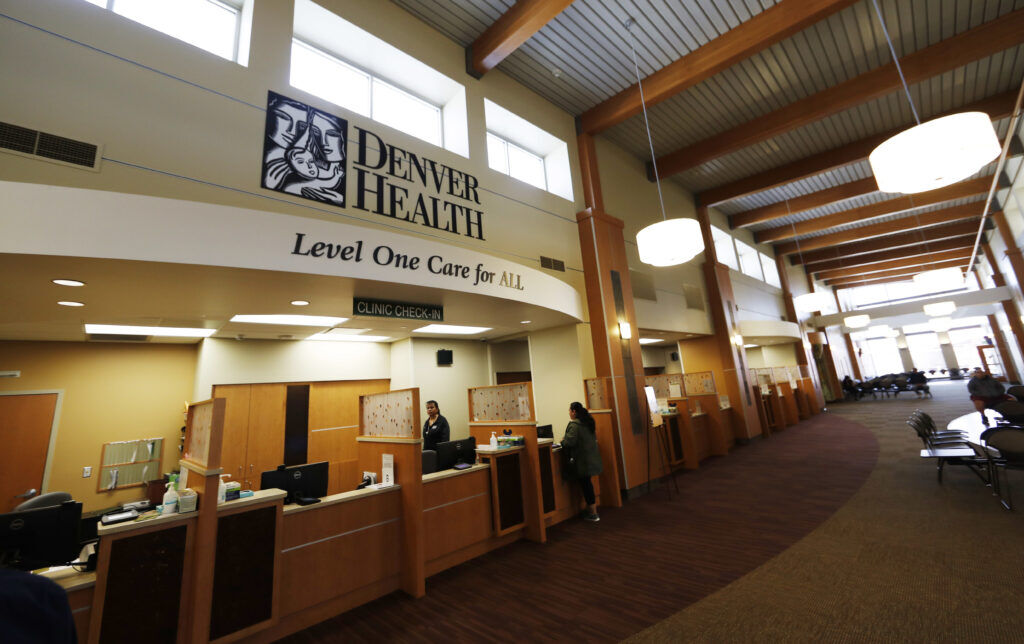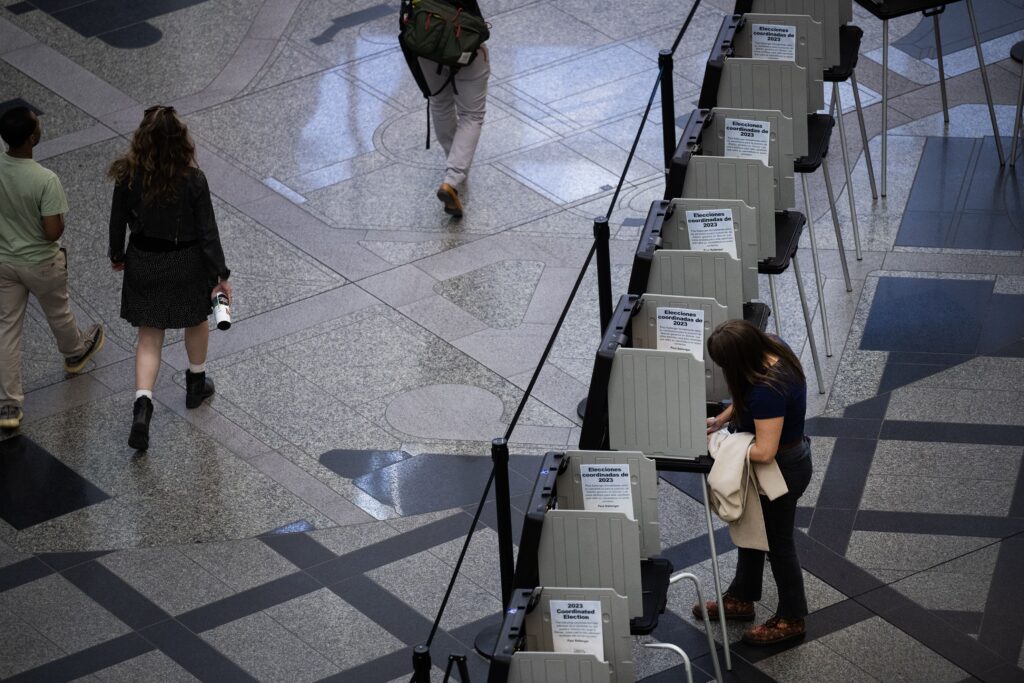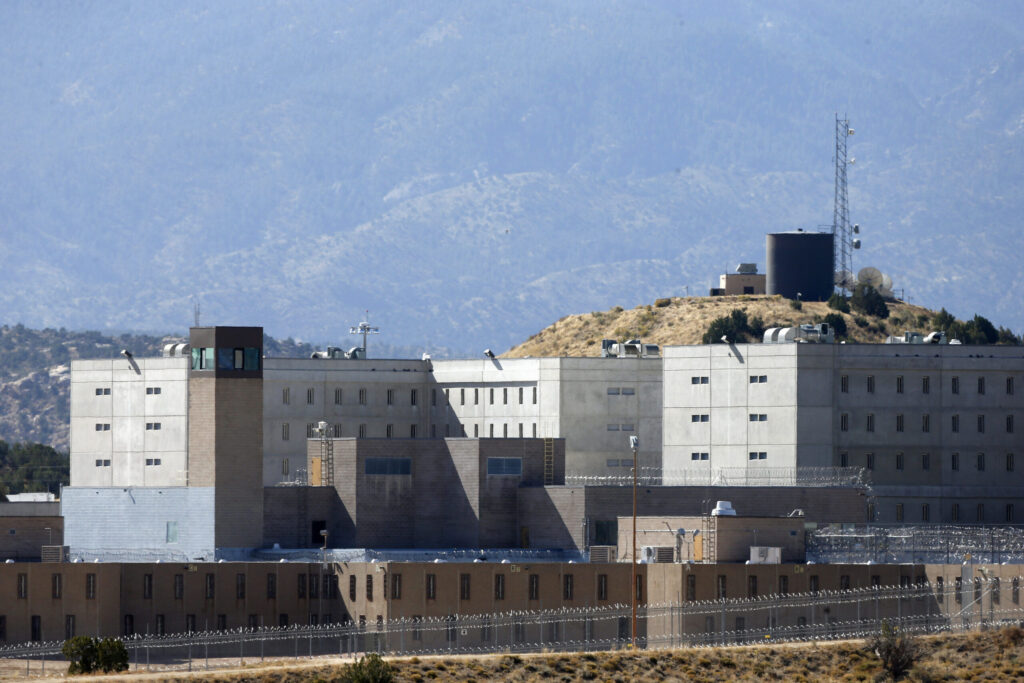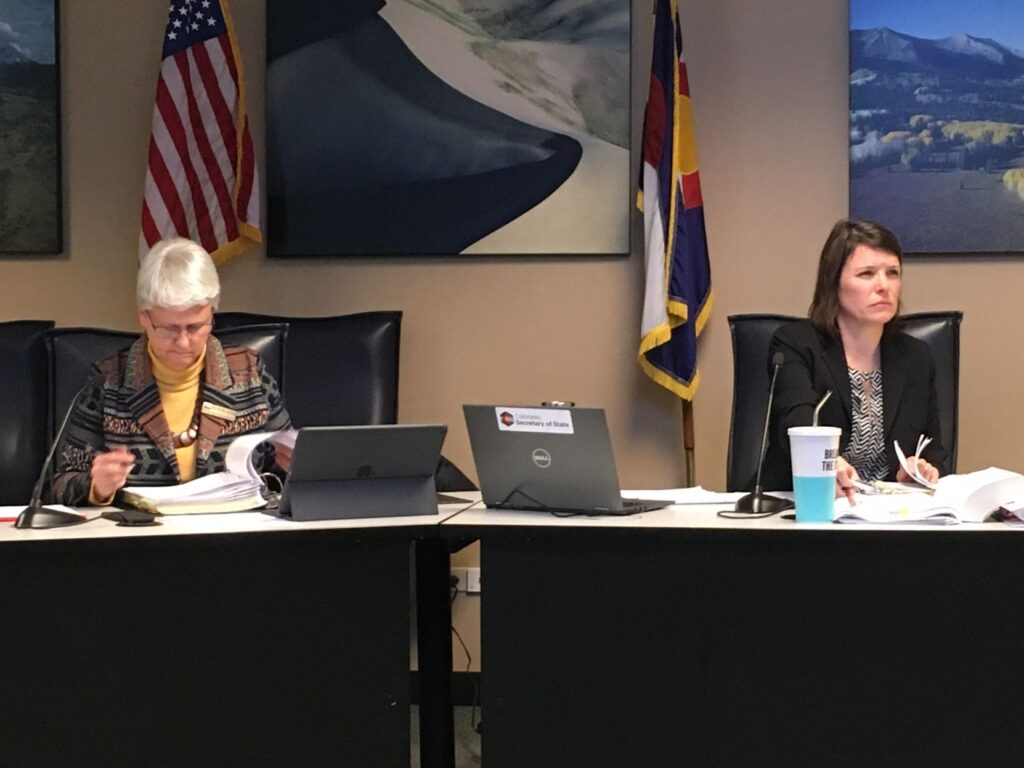Gov. Jared Polis asks lawmakers for $10 million to sustain food stamp program in Colorado as shutdown enters fifth week

As the federal government shutdown looks poised to enter its fifth week, Colorado officials are scrambling to sustain several federal programs, compelling the governor to ask the legislature for a cash infusion.
Gov. Jared Polis on Wednesday requested the legislature’s Joint Budget Committee to allocate $10 million from the state’s General Fund to provide assistance to food banks and pantries and extend funding for U.S. Department of Agriculture’s Women, Infants and Children (WIC) program.
The request would cover funding for both WIC and federal food stamp benefits officially known as Supplemental Nutrition Assistance Program through mid-December, if necessary.
Both programs have been frozen as a result of the shutdown.
According to a letter sent to regional SNAP directors by the USDA on Oct. 10, the agency’s funding for the programs will expire at the end of the month, meaning approximately 42 million Americans will not receive benefits for November.
Nearly 600,000 Coloradans received SNAP benefits in 2024, accounting for almost 10% of the state’s population.
Here are other programs, grants and benefits that Colorado receives that have been affected by the government shutdown:
- Financial aid for schools on government land: The Department of Education’s Impact Aid Program, which supports school districts located on federally-owned land, such as military bases or tribal lands exempt from local property taxes, has been suspended due to the shutdown. According to the National Association of Federally Impacted Schools, Colorado got $50 million in Impact Aid split between 12 school districts, and payments have been delayed.
- Assistance for community health centers: Colorado is home to 21 community health centers, which provide health care to uninsured individuals and are funded through a combination of federal grants, state and local funds, and reimbursements from Medicare and Medicaid. The Community Health Center Fund, which provides funding to the country’s community health centers, expired on Sept. 30. Colorado receives about $111 million a year from the fund. About 65% of the state’s community health centers are currently operating with negative margins, leading many to dip into reserves, consolidate clinic sites, and make layoffs, officials said. In an effort to keep some of those facilities afloat, Colorado legislators this year passed a bill allowing private donations to be made to the state’s designated fund for federally qualified health centers.
- Monthly jobs report delayed: The Bureau of Labor and Statistics has suspended all operations during the shutdown, delaying the release of its monthly jobs report, which the Colorado Department of Labor and Employment also uses. The bureau has also suspended its surveys and statistical activities related to employment, wages and labor conditions.
- Loans for small businesses: The U.S. Small Business Administration has frozen funding for its two core loan programs: 7(a), which provides up to $5 million in financial assistance to small businesses, and 504, a long-term, fixed-rate loan for major business assets, such as real estate and equipment. According to the SBA, due to the shutdown, an average of 46 small business loans in Colorado are going unapproved each week, resulting in a loss of $26,000 in potential funding every week.
- Some veteran services: While most of the Veterans’ Affairs operations have continued during the shutdown, some services, such as career counseling and the GI Bill hotline, have paused operations. The agency’s regional offices, including the one in Denver, are temporarily closed, and the VA’s Central Office has suspended outreach to community-based partners.
- Increased insurance premiums: A major point of contention among Democrats and Republicans in Congress are the enhanced tax subsidies for low-income Americans who purchase health insurance through the individual marketplace. The federal budget did not extend the tax credits enhancements adopted by the American Rescue Plan Act of 2021 and extended by the Inflation Reduction Act of 2022; hence, the subsidies, now smaller, would only be available to families with incomes below 400% percent of the federal poverty level. The enhanced credits are set to expire this December. According to the Colorado Division of Insurance, Coloradans could see their insurance premiums increase by 28% as a result, with those on the Western Slope potentially seeing a nearly 40% increase.

Lawmakers in Congress provided few public signs of meaningful negotiations to break the impasse on reopening the federal government, with House Speaker Mike Johnson saying on Monday that it is Democrats who needed to “stop the madness.”
President Donald Trump, when asked on Sunday night when federal workers would be fired as he has threatened, told reporters: “It’s taking place right now, and it’s all because of the Democrats.” He declined to answer a question about which agencies are subject to the cuts.
The possibility of layoffs has escalated the already tense situation, in which Washington lawmakers have struggled to find common ground and build trust. Leaders in both parties are betting that public sentiment has swung their way, putting pressure on the other side to cave.
Johnson, the speaker, told reporters on Monday that they could stop asking why he isn’t negotiating an end to the impasse and that it is up to a handful of Democrats to “stop the madness” and pass a stopgap spending bill that had earlier passed the House.
“There’s nothing for us to negotiate. The House has done its job,” Johnson said.
The House is not expected to be in session this week, focusing attention on the Senate to take the lead on any deal in the Republican-led Congress. Yet even with House lawmakers away, the Republican and Democratic leaders have been holding almost daily briefings as they frame their arguments and seek to shift blame for the shutdown.
Democrats are insisting on renewing subsidies to cover health insurance costs for millions of households, while Trump wants to preserve existing spending levels, as he believes that Democrats will have to fold because of the jobs and federal infrastructure and energy projects being put at risk.
House Democratic leader Hakeem Jeffries of New York, among those who appeared on the Sunday news shows, said there have been no talks with Republican leaders since their White House meeting on Sept. 29. He said since then Republicans, including Trump, “have gone radio silent.”
Democratic Sen. Adam Schiff of California defended his party’s stance on the shutdown, saying the possible increase in health care costs for millions of Americans would make insurance unaffordable in what he called a “crisis.”
Meanwhile, Republicans insisted the Democratic demands would lead to billions in health care spending for immigrants in the country illegally; Democrats disputed that claim.
Republicans said Democrats’ own funding measure would eliminate recently-enacted safeguards against waste, fraud and abuse at a cost of $200 billion to American taxpayers in the form of health care subsidies going to immigrants illegally living in the U.S.
In particular, Republicans said the Democrats’ plan would, among other things, undo the elimination of enhanced matching funds for emergency care that those immigrants get, repeal the Affordable Care Act’s “special rule” and allow for what they called the “California loophole.”
The Associated Press contributed to this article.

















